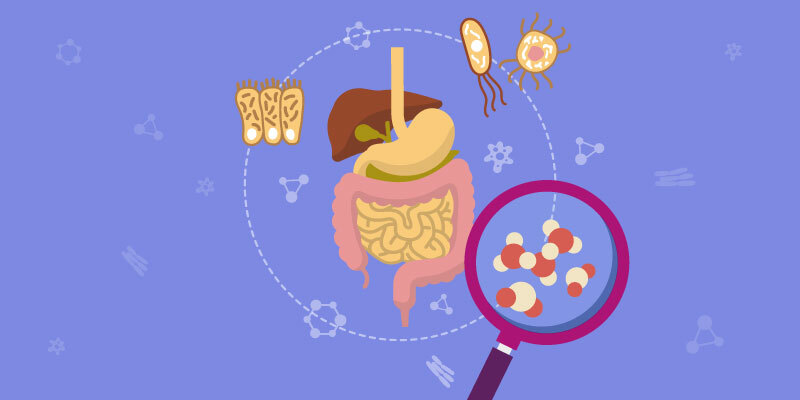
Do you ever look at your body and wonder how it manages to grow and change so quickly and efficiently? And how does it continues to function like a well-oiled machine?
We have enzymes to thank for the miracle that is the human body. What are enzymes, and why are they so important? Let’s find out.
What are enzymes?
Enzymes are a special type of protein that exists in every living thing, inside and outside the cells. And like any other protein, they help with the growth and functioning of the body. There are many types of enzymes, and each has a very specific function – like breaking down food or building muscle tissue.
Enzymes are ‘catalysts’ or substances that speed up a chemical reaction. They are vital in helping essential processes like digestion, cell-building, and healing. Without enzymes, these chemical reactions and processes would still take place but at a much slower rate, which would make our survival very difficult. Hence, they’re also referred to as the building blocks of our body.
How enzymes work
As we’ve mentioned before, enzymes are very specific, and each performs exactly only one function by reacting only with the substance they’re meant to. This also ensures that an enzyme performs the right function without any mix-ups.
Enzymes work by reacting with something called a substrate. A substrate is a molecule that fits perfectly into an enzyme, like a puzzle piece. All enzymes have a groove called an ‘active site’, which is where the substrate fits perfectly. The enzyme reacts with the substrate by treating it like food. Once the reaction is done, the enzyme releases its product. For example, in the process of digestion, one of the types of enzymes that is activated is called ‘lactase’. Its only function is to help break down lactose, a kind of sugar that is found in dairy products. Once a molecule of lactose meets lactase, it uses it as a substrate and reacts with it. The end product from the enzyme is energy, which is then used by the body.
What affects enzymes
While enzymes speed up chemical reactions and processes in our body, it is also important that they don’t do it too quickly so that it doesn’t release too much energy in one go. There are some factors that can slow down enzyme activity or even stop it completely.
Temperature is very important for enzyme activity. The higher the temperature, the faster the enzyme activity, and hence the chemical reaction. But extremely high temperatures (like when you get a fever) can completely stop enzyme activity too. Similarly, a higher or lower pH level, which is the level of acidity, can affect the reaction rate. If there are excessive amounts of substrate or even inhibitors (molecules that stop enzyme activity), then reactions can come to a complete stop.
Our bodies produce enzymes naturally, and they don’t stop working after one reaction. Thanks to their uniquely beneficial nature, enzymes are also used in making medicines and even industrial processes like paper-making and processing food.
Now that you know how important enzymes are, what other marvellous mysteries of the body would you like to uncover? Let us know in the comments.
Read more about the human body in BYJU’S ‘Did You Know?’:
What’s In Your Genes: 10 Facts About Genes You Need to Know
Madhavi is passionate about everything to do with books, art, literature, films, trivia and food. A former journalist, she believes that asking questions makes life interesting.